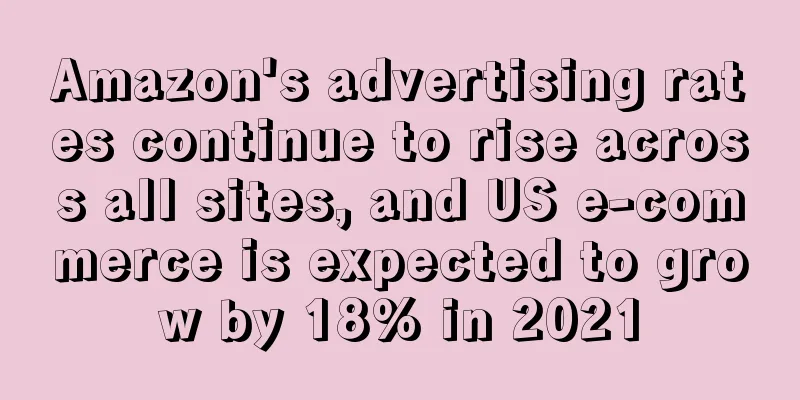Indonesia restarts live streaming e-commerce, and small and medium-sized enterprises applaud

|
After Indonesia issued a ban at the end of September, whether TikTok's e-commerce business can return has become a topic of great concern in the industry. This week, TikTok officially announced that its Indonesian e-commerce business will be merged with the local platform Tokopedia. The banned TikTok e-commerce business will be re-launched on December 12, Indonesia's National Online Shopping Day.
How did TikTok get through this thrilling hurdle? What are the considerations behind the decision? The outside world is talking about it with great relish. After the Indonesian government shook hands with it, TikTok's e-commerce was connected to the ground, and with the help of local allies who have been deeply involved in the market, it is expected to make great strides, which makes sellers who rely on the platform to make money quite excited.
Breaking the ban, TikTok e-commerce returns to Indonesia
After more than two months, TikTok e-commerce returned to Indonesia.
On December 11, TikTok officially announced that it had reached a strategic e-commerce cooperation with Indonesia's GoTo Group. TikTok's Indonesian e-commerce business will be merged with the latter's e-commerce platform Tokopedia, and the merged Tokopedia will be controlled by TikTok. The previously banned TikTok e-commerce was also re-launched on December 12, Indonesia's National Online Shopping Day.
The wind direction did not change suddenly. When the Indonesian Ministry of Trade issued regulations at the end of September requiring TikTok to separate its e-commerce business from social media, it caused a lot of controversy.
The first to be angered were the merchants. "Of course I oppose this ban! I don't understand how the government is going to enforce it, breaking into my home while I'm live streaming?" complained Yuni, an Indonesian small home appliance merchant. She has been in TikTok Shop for half a year, and her turnover has doubled, with daily sales reaching 4 million rupiah. It is hard for her to accept that her orders were suddenly cut off.
Beyond the platform ecosystem, many scholars also believe that the ban is a mistake. Nailul Huda, a researcher at the Indonesian Institute for Economic and Financial Development, bluntly stated that banning TikTok Shop will undermine the digitalization of small and medium-sized enterprises. This is a step backward, and the government should replace the ban with regulation.
Why does Indonesia want to block TikTok e-commerce?
One theory is that the latter has affected local economic development, which is obviously an excuse. In fact, TikTok has opened up new sales channels for small and medium-sized enterprises, enabling them to reach more customers at a lower cost. Many businesses have seized the opportunity of social e-commerce and quickly accumulated wealth. For example, Richard Lee, an Indonesian beauty blogger, sells beauty and skin care products to 4.7 million Indonesian fans. In August, the highest single-day order amount of TikTok live broadcast reached 40.3 billion Indonesian rupiah, about 19 million yuan, breaking Indonesia's online direct sales record and causing a sensation.
The Indonesian think tank "Institute for Economic and Financial Development" revealed the original intention of the ban. The agency said that as many as 74% of the products sold by Indonesian e-commerce sellers are imported from China, and the "overflow of Chinese products" on the TikTok platform "poses a threat" to local companies, and that regulation should be strengthened. Indonesian Minister of Small and Medium Enterprises Teden also accused TikTok of having a large number of Chinese products and that the prices were too low, making it impossible for local companies to compete with them.
Then the ban was issued. But this argument is hard to understand, after all , Chinese products had been pouring into Indonesia for years before TikTok’s e-commerce business entered Indonesia. Sure enough, nearly a month after the ban was issued, the Tanah Abang Market in Jakarta did not see a flood of people, but the passenger flow was half of what it was before.
Social shopping is booming, Indonesia can’t live without TikTok e-commerce
Despite Indonesia's rejection, social e-commerce has become a market development trend. Rizal, a professor at the University of Indonesia, analyzed: "People need social interaction when shopping, which is why social shopping is growing. Why is TikTok store more popular than other e-commerce platforms? Because people are not just shopping."
While Indonesia blocked TikTok e-commerce, companies in neighboring countries enjoyed a sales feast on this platform. During this year's 11.11 promotion, the performance of TikTok e-commerce in five sites, including the Philippines and Malaysia, increased by multiple times, with Thailand increasing nearly 10 times and Vietnam increasing 8 times compared to last year.
TikTok e-commerce is driving the development of small and medium-sized enterprises in Southeast Asia. Take Malaysia as an example. There are more than 1 million Malaysian sellers on the platform, 98% of which are small and medium-sized enterprises. Merchants from different backgrounds can find a foothold in TikTok e-commerce. New sellers have a fast sales channel, and old sellers can also dig out new sales.
It is clear to all that these livelihood opportunities cannot be killed. The chairman of the Malaysian E-Commerce Committee admitted that banning TikTok e-commerce would cause serious damage to small and medium-sized enterprises. Indonesia has also gradually realized this, and many officials have changed their tune recently and started to support TikTok's cooperation with local companies.
On December 6, Indonesian Trade Minister Zulkifli Hasan said that cooperation between local companies and foreign industries is allowed. "In essence, this arrangement is to allow social e-commerce to support Indonesia's economic growth, so that it can become a supporter of small and medium-sized enterprises and Indonesian industry-led markets." He gave the green light for TikTok e-commerce to cooperate with Tokopedia, and TikTok e-commerce returned smoothly.
This is a win-win situation. Seeing that live streaming can boost the economy, the Indonesian government allowed TikTok e-commerce to return, hoping to fuel Indonesia's economic growth; TikTok e-commerce also successfully regained its high ground. Indonesia is the largest economy in Southeast Asia and the first stop for TikTok e-commerce. TikTok has a very high penetration rate in the local market, with 125 million monthly active users. Its market size is second only to the United States and the European Union, and its value should not be underestimated.
The return of TikTok e-commerce has made sellers overjoyed, and they want to continue doing business on it. Rifa, a seller in Panjabbaru, also operates other platforms, but he believes that TikTok e-commerce has more business. "Compared with e-commerce platforms such as Marketplace, through TikTok Shop, I have gained more customers and higher turnover," he said.
TikTok takes a step forward after careful consideration, increasing its investment in Indonesia
A closer look reveals that TikTok's move to return to Indonesia was well-considered:
First, Tokopedia is the largest local e-commerce company in Indonesia, with a market share of 35%. After the merger, the market share of the two companies will jump up, and they can also complement each other in local penetration and international expansion. At present, the total market share of the two companies in Southeast Asia is second only to Shopee. Referring to the development trajectory of domestic e-commerce, the offensive of social e-commerce channels will be more fierce in the future, and the possibility of further development cannot be ruled out.
Secondly, Tokopedia has performed well in cooperation with small and medium-sized enterprises and is officially stamped as a "government partner" by Indonesia. TikTok has thus acquired high-quality local genes and solved the biggest challenge on its way to going overseas.
Indonesia is optimistic about the cooperation between the two and hopes to benefit more companies. TikTok and Tokopedia also expressed their willingness to jointly promote the development of Indonesia's digital economy and support small and medium-sized enterprises. On the day of the resumption of online operations, the two jointly launched the "Buy Local Products" (BeliLokal) campaign to help the development of local Indonesian companies.
Furthermore, after this cooperation, Tokopedia will be controlled by ByteDance. This is very important.
TikTok e-commerce is ready to go after removing the shackles . TikTok has pledged to invest $1.5 billion in the next few years to provide financial support for future business development; and compared with conventional e-commerce platforms, social e-commerce is easier to attract and convert customers. It is foreseeable that a giant will soon emerge in the Southeast Asian e-commerce market. |
<<: Amazon is sued by its US e-commerce peers!
>>: Layoffs at the end of the year! A number of operators have lost their jobs
Recommend
What is Yingkai International Freight Forwarding? Yingkai International Freight Forwarding Review, Features
Guangzhou Yingkai International Freight Forwarding...
Two brands initiated rights protection, and the sellers promptly conducted self-inspections
Infringement is one of the major problems that bo...
Virtual concerts set off a new trend, Snapchat games and entertainment come up with new tricks
Recently, international pop star Jennifer Lopez a...
What is Hotlist Marketing? Hotlist Marketing Review, Features
Shenzhen Hotspot Marketing Co., Ltd. aims to prov...
What is borowski-glass-hk? borowski-glass-hk Review, Features
borowski-glass-hk is a website focusing on handmad...
Sellers beware: South Korea will step up inspections of infringing goods
As a cross-border seller, you are no stranger to ...
Awesome! Former Anker executive quits to sell lights, with annual sales of 3 billion
As cross-border e-commerce is gaining popularity ...
What is ShopBack? ShopBack Review, Features
Shopback is an e-commerce discount cashback websit...
A number of cross-border e-commerce companies collapsed at the end of the year
This year's Black Friday dealt a heavy blow t...
With 25.84 million active users, Malaysia's e-commerce development potential is huge
Last year, the United Nations trade and developme...
What is Yuanli ERP? Yuanli ERP Review, Features
Force ERP is a software that realizes the query an...
Prime Day debut goes viral, dark horse in pet industry completes $10 million in financing
For pet e-commerce and related brands, the bonus ...
What is Zhihui Chuangxiang? Zhihui Chuangxiang Review, Features
Zhihui Chuangxiang (Shenzhen Zhihui Chuangxiang Te...
What is Sigue? Sigue Review, Features
<span data-docs-delta="[[20,{"gallery"...
Consumers return to the gym! The US fitness equipment market is still hot
According to PR Newswire, according to the latest...









